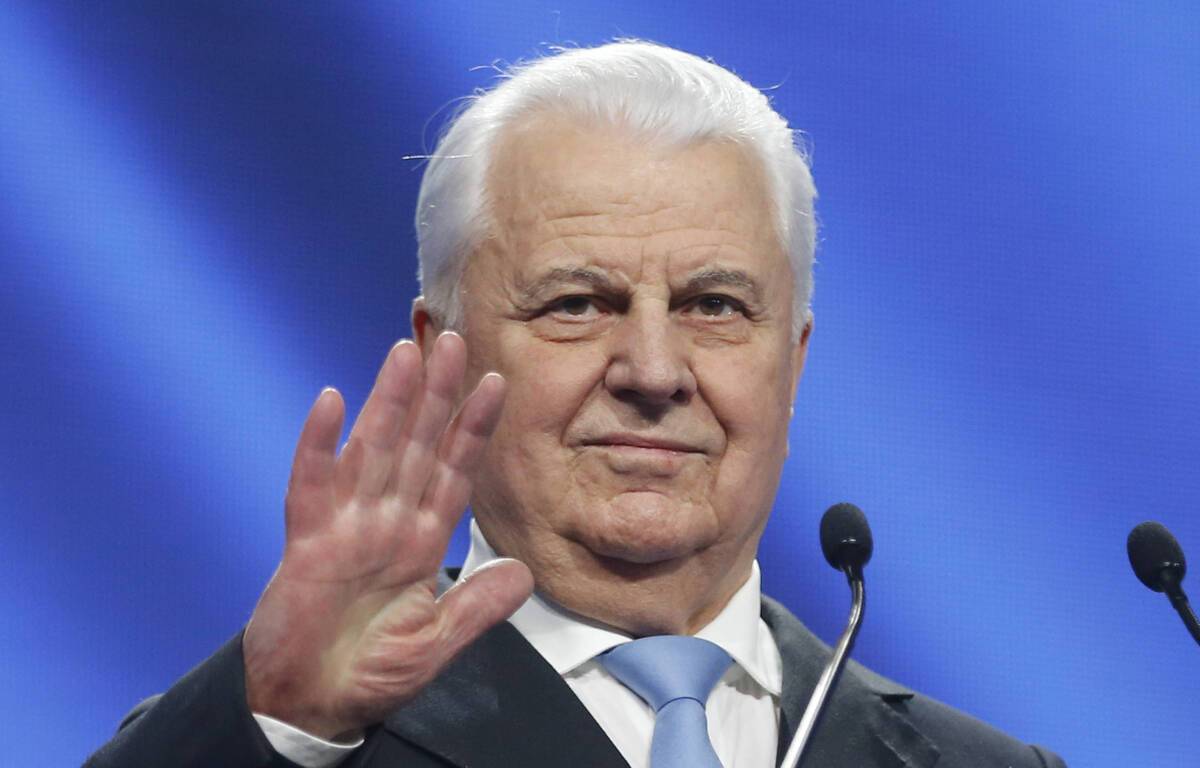“He knew the price of freedom and wanted with all his heart peace for Ukraine. We will do it, we will win”. Volodymyr Zelensky paid tribute to the “wisdom” of Leonid Kravchuk, who died Tuesday at 88 in the midst of the Russian invasion. He who was one of the gravediggers of the USSR who, as the first president of independent Ukraine, also returned to Moscow the nuclear arsenal inherited from the Soviet Union, the third in the world.
“Leonid Kravchuk was not only a politician and a historical figure, but also a person who knew how to find wise words so that all Ukrainians would hear him”, reacted the Ukrainian president, speaking of the one who “had known the Second World War world and the occupation”.
Political sense but popular discontent
A man with gray hair and a smirk, Leonid Kravchuk was known for his political acumen, which did not, however, save him from popular discontent. In August 1991, the then leader of the Ukrainian Soviet Socialist Republic succeeded in a few days in persuading the Communist majority in Parliament to proclaim the independence of Ukraine.
A few months later, he was easily elected in the first round as president of independent Ukraine, playing the card of compromise between the communists and the nationalists and earning on this occasion a nickname, “cunning fox”.
Then, on December 8, 1991, Leonid Kravchuk initialed with his counterparts from Soviet Russia and Belarus, Boris Yeltsin and Stanislav Chouchkevich, a treaty organizing the dissolution of the USSR, signing the death warrant of the Soviet empire.
Born in 1934 into a peasant family in the Rivne region, then in Polish territory, Leonid Kravtchouk had until that time patiently risen to the top of the Soviet hierarchy, thanks to a long career as a bureaucrat. A graduate of a special Communist Party school, he had spent thirty years in the Party’s propaganda department.
Missed chance
The victory in the Ukrainian presidential election of Leonid Kuchma, deeply linked to the communist system, is however considered by many as a missed chance for Ukraine. That, in particular, of following the Baltic States or Poland on the path to European integration and economic development.
During his tenure, from 1992 to 1994, the inflation rate in Ukraine exceeded 1000%, corruption scandals were common and dozens of banks went bankrupt, causing a drastic drop in the standard of living in this former Soviet republic considered as one of the most privileged.
Symbol of this era, the two-wheeled shopping bag in which the Ukrainians brought their goods to the market to try to make ends meet will earn the nickname “kravtchoutchka”.
At the same time, independent Ukraine finds itself under pressure from Moscow and Washington. Fearing a potential catastrophe, the two powers forced kyiv to surrender its nuclear weapons inherited from the USSR, in exchange for security guarantees from the West.
Decision haunting Ukraine
Dozens of ballistic missiles and strategic bombers are returned to Moscow. While it long seemed innocuous, the decision came back to the fore in 2014 after the annexation of Crimea and the outbreak of a war between kyiv and pro-Russian separatists backed by Moscow, some observers seeing it as a serious mistake. .
From then on, Leonid Kravchuk’s popularity fell. In 1994, a political crisis forced him to call an early presidential election, which he lost to his former Prime Minister Leonid Kuchma, considered pro-Russian.
Then elected MP, Leonid Kravtchouk will continue a political career without much success until 2006, when he loses his mandate in the Ukrainian Rada (parliament).
He will make a brief return to the political scene in 2020, accepting President Volodymyr Zelensky’s offer to become one of the Ukrainian negotiators in talks with Russia on the settlement of the conflict in the east of the country.
